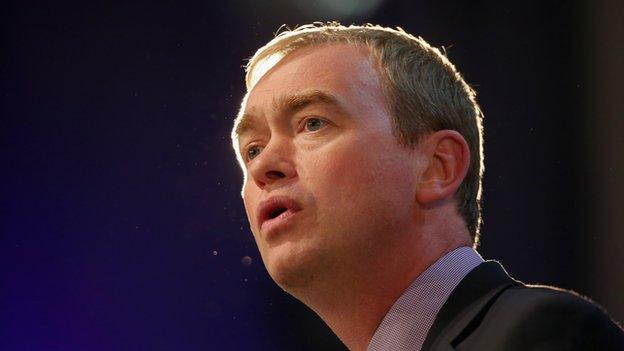Lib Dems need to 'turn anger into action' - Farron
- Published
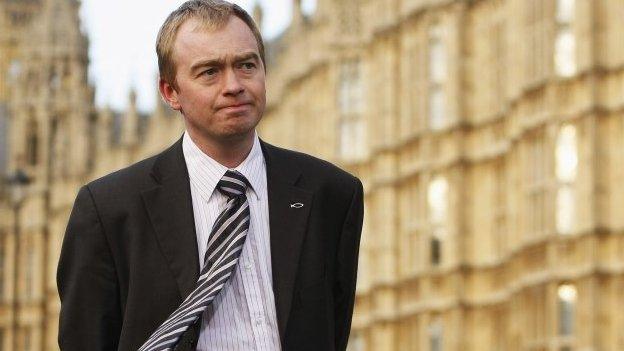
Tim Farron is regarded as the frontrunner to succeed Nick Clegg
The Liberal Democrat Tim Farron says his party must "turn our anger into action" and rebuild from the bottom upwards.
Mr Farron was one of the few who held onto his seat in last week's election, while the rest of his party lost almost 50 seats.
He said he felt a sense of anger the election had been fought "on the politics of fear".
He is seen as one of the frontrunners to become the next party leader.
The Liberal Democrats have set in motion a two-month contest to succeed Nick Clegg after they said a new leader would be elected in July.
'Terrified of the other'
Mr Clegg is stepping down after a slew of Lib Dems lost their seats including top figures Vince Cable, Simon Hughes and David Laws.
Speaking on BBC Radio 4's Today programme Mr Farron added: "You always feel anger when you see dozens of mates basically and colleagues lose their seats having had an outstanding record locally and nationally.
"And I guess a sense of anger - if that is the right word - against an election that was fought and indeed sadly won on the basis of the politics of fear.
"When one looks back at the election and you realise that the best asset David Cameron has is the SNP and the best asset the SNP has is David Cameron.
"This was an election fought basis of people terrified of the other. Fear is hugely motivating factor in elections, I'm sad to report."
Mr Farron and his colleague Norman Lamb are seen as the frontrunners to take Mr Clegg's place.
'Strong leadership'
Greg Mulholland, one of the party's remaining eight MPs, said a new leader must be chosen quickly.
"We must not - and will not - wait till July to have a new leader in place. We need strong leadership now," he said.
Several senior party figures, including former Liberal leader Lord Steel, have warned it could take decades for the party to recover from its worst election result in its history.
The party has been left with a handful of MPs, including one in Scotland, one in Wales and one in London, following a series of defeats which some activists have blamed on Mr Clegg's decision to take the Lib Dems into coalition with the Conservatives in 2010.
Nominations for leader will open on 13 May and close on 3 June. Ballot papers will be sent out on 24 June and must be returned by 15 July. The winner will be declared on 16 July.
Neither Mr Farron, a former party president, nor Mr Lamb, a former health minister, have declared themselves as candidates. However, they are regarded as the leading contenders and both are expected to stand.
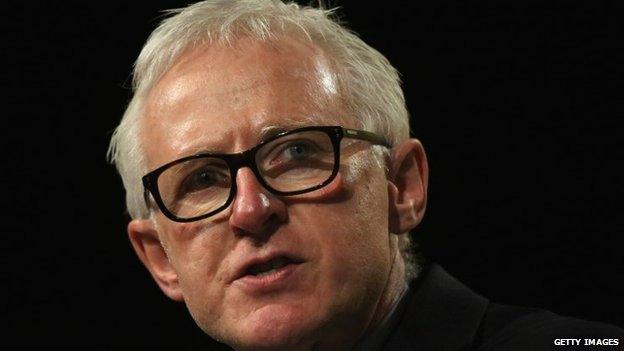
Norman Lamb is also thought likely to stand
Tom Brake, who served as a minister in the last government, has ruled himself out of the running and said the contest must act as a catalyst for debating the future direction of the party.
"What will happen during that contest will be that there will be an opportunity to talk about what went wrong and what sort of strategy do we put in place," he told the BBC's Sunday Politics.
He said he was not backing anyone at this stage but that either Mr Farron or Mr Lamb would be "fantastic leaders".
He added: "We have had 5,000 people join our party in the last 48 hours. They will want to be part of the process."
Mr Brake, the party's last remaining MP in London, said the capital needed a "liberal voice" to speak up on behalf of civil liberties and the importance of the UK remaining in the European Union.
'Decapitation'
He said he had been "lucky" to survive the cull of Lib Dem MPs in London, suggesting the Conservatives had redeployed resources from his Carshalton and Wallington seat to higher-profile constituencies in the capital.
The Liberal Democrat peer, Lady Williams, said both the Conservatives and Labour had used a "decapitation strategy" against Liberal Democrat MPs including Mr Cable and Mr Hughes.
She suggested her party's opponents had poured vast sums of money into the election before official limits on campaign spending came into force and called for a "much longer period" of controls on election campaign expenditure.
"All these men and women were targeted in order to be destroyed," she told BBC Radio 4's World This Weekend.
"What one's looking at is not just the normal swings and balances of politics. We're looking at something much worse... namely the selling of democracy.
"The sums that were poured into this election exceed by a very long mark any of the amounts spent in recent elections."
- Published9 May 2015
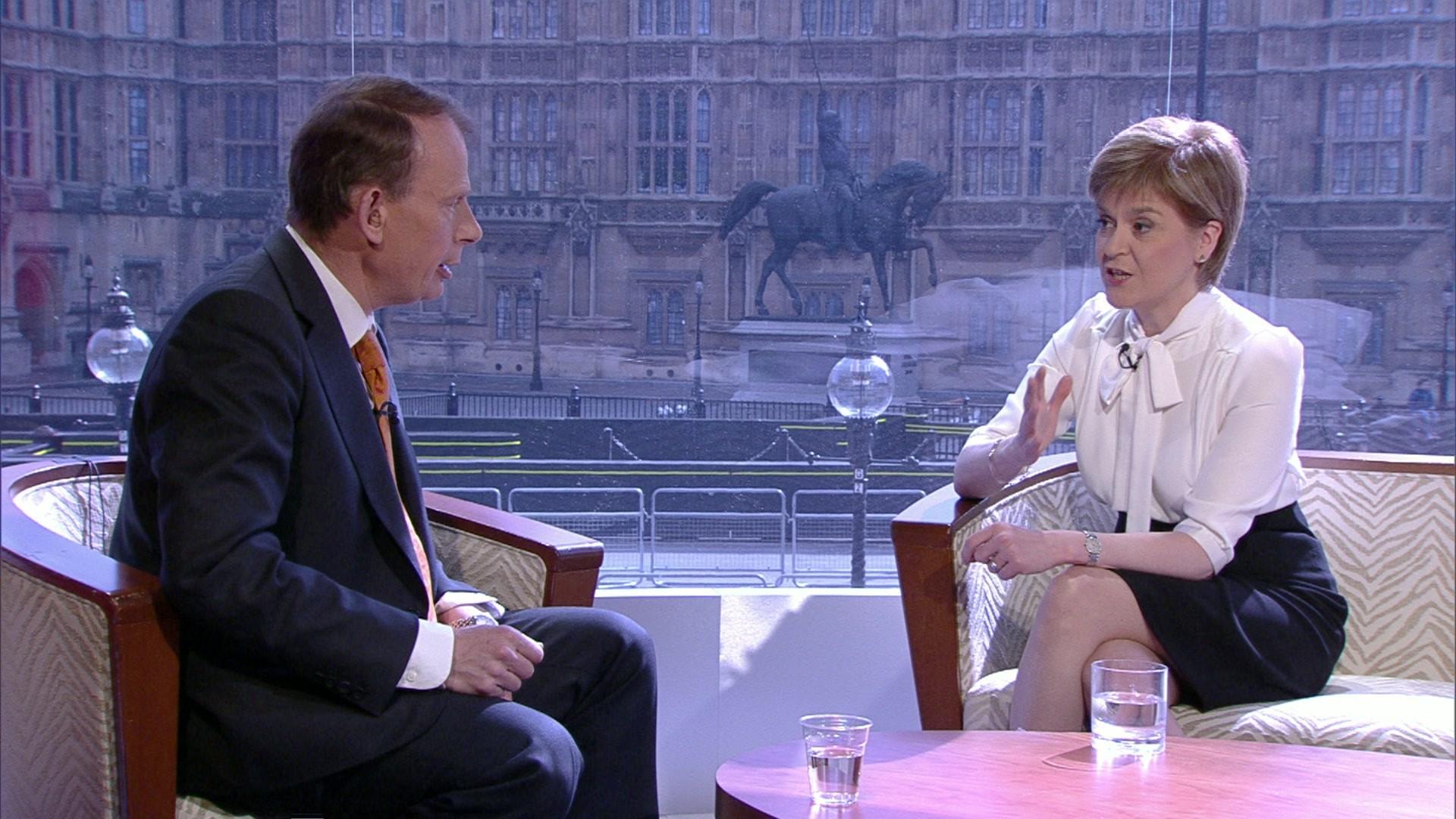
- Published8 May 2015
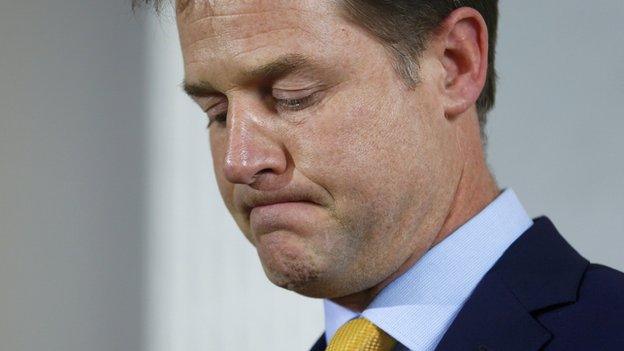
- Published9 May 2015
